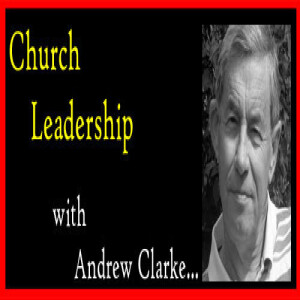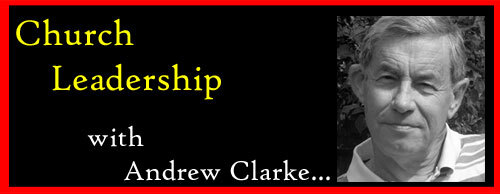
436.3K
Downloads
3361
Episodes
G’day and welcome to Partakers Christian Podcasts! Join us for uplifting Bible teaching, inspiring readings, heartfelt worship, powerful prayers, and fascinating church history. Whether you’re new to faith or growing deeper in your journey, we’re here to encourage and equip you. 🎧 Tune in, interact, and be inspired—wherever you are in the world.
G’day and welcome to Partakers Christian Podcasts! Join us for uplifting Bible teaching, inspiring readings, heartfelt worship, powerful prayers, and fascinating church history. Whether you’re new to faith or growing deeper in your journey, we’re here to encourage and equip you. 🎧 Tune in, interact, and be inspired—wherever you are in the world.
Episodes

Wednesday Sep 18, 2024
Church Leadership 08 - Example of Stephen
Wednesday Sep 18, 2024
Wednesday Sep 18, 2024

Church Leadership
Session 8:
What can we learn from Stephen – a member of the first team of deacons?
Please do read Acts 6 – and 7.
We see from Acts 6 that there was a complaint (no surprises there, then – after all this was church!). Thankfully, this one led to a positive outcome – would it were so in every case?
Stephen is one of seven chosen as “deacons” – or servants – but they too had to be full of the Holy Spirit. We don’t hear much more about the others (except Philip) – but they probably quietly got on with the job they were assigned to do. And there is a lesson for all of us in that – quietly serving God and His Church without becoming grumpy.
As we read about Stephen – remember his role is as a deacon (a “waiter on tables”) - one word seems to keep coming up – he was a man who was full!
1. Full of the Holy Spirit – Acts 6:3; 6:5; 7:54
This was his lifestyle – and he clearly stood out from among the other disciples – many thousands by this time. He was also noted among the seven as being full of the Holy Spirit. The impact of what was about to happen to him gave him a special anointing (7:54) as is often the case in extreme circumstances.
2. Full of wisdom – Acts 6:3
He knew the promise of God recorded for us in James 1:5 – and sought the Lord for the wisdom he needed to do what he was doing. As we see from Acts 7, he understood his roots and how that was important for the God’s people and was able to set his message in context. We need to have the wisdom required to make the message of the gospel relevant today – and that means understanding our origins and the truths of the Old Testament as well as the New.
We live in an era of instant accessibility to information. We also live in an era of complexity. Whilst it may be tempting to rely on education, the internet, intelligence or experience, we need God’s wisdom. Different from information, different from knowledge, wisdom is God’s and accessed through humble prayer and openness to his ways.
3. Full of faith – Acts 6:5
Without faith we cannot please God - Jesus is the Author and Finisher (or perfecter) of faith (Hebrews 12:1ff.). It is one of the gifts of the Holy Spirit. It is about turning belief into action – faith is a “doing” word. He was full of faith!
4. Full of God’s grace – Acts 6:8
Grace is a Divine attribute – often linked with compassion (e.g. Exodus 34:6 and Numbers 6:25). Jesus was described as being “full of grace and truth” (John 1:14). Paul began most of his letters with the salutation “Grace and peace from God the Father”.
In Stephen’s case it was probably describing a compassionate kind, thoughtful man – one who was showing evidence of the fruit of the Spirit (Galatians 5:22). He would have also understood the impact of God’s grace in his own life – he knew forgiveness and cleansing and the freedom in Christ which is ours through grace.
5. Full of God’s power – Acts 6:8
“Power corrupts – absolute power corrupts absolutely” But not in the case of one who recognises that the source of his power is God and who uses that power under His authority.. Through this power Stephen did great wonders and miraculous sings among the people (6:8) – and he was only a deacon – a “waiter on tables”!
6. Full of courage – 7:51 ff.
He was not afraid to tell the spiritual leaders of the nation “where it was at”. The nations need such a prophetic voice today! His immense courage was evidence of his faith (Hebrews 11: 32 – 40) – and he received the highest reward possible – being welcomed into the presence of God. We may not need to face what Stephen did, but let us be courageous in sharing our faith wherever we find ourselves.
As I thought about Stephen’s “fullness”, my mind went to Paul’s prayer for the Ephesians as recorded in his letter to them (Ephesians 1:15 22):
“For this reason, ever since I heard about your faith in the Lord Jesus and your love for all God’s people, I have not stopped giving thanks for you, remembering you in my prayers.
I keep asking that the God of our Lord Jesus Christ, the glorious Father, may give you the Spirit of wisdom and revelation, so that you may know Him better.
I pray that the eyes of your heart may be enlightened in order that you may know the hope to which He has called you, the riches of His glorious inheritance in His holy people, and His incomparably great power for us who believe.
That power is the same as the mighty strength He exerted when He raised Christ from the dead and seated Him at His right hand in the heavenly realms, far above all rule and authority, power and dominion, and every name that is invoked, not only in the present age but also in the one to come.
And God placed all things under His feet and appointed Him to be head over everything for the church, which is His body, the fullness of Him Who fills everything in every way.”
As we come to end of this session, it is worth recapping on what we’ve looked at so far.
- We saw that Jesus is the Head of the Church – so He is in charge.
- We have looked at some of the expressions used in the New Testament for leaders in churches.
- We have considered four leaders from the Old Testament – Moses, Daniel, Joseph and Nehemiah – and two from the New Testament – Timothy and Stephen.
- We have considered the ‘code of conduct’ for both elders and deacons as set out in Paul’s letters to Timothy and Titus.
- "How do I know I am called to leadership?” or: “Why would I want to be a leader?”
- “What are the marks of a good leader?” or: “Is (s)he a leader worth following?
- What happens when it all goes wrong?
- What can God do with a leadership team that is totally committed to Him?
A prayer: “Thank you, Jesus, for the example of Stephen. Fill me again with Your Spirit so that I can be what You want me to be. Amen”

No comments yet. Be the first to say something!